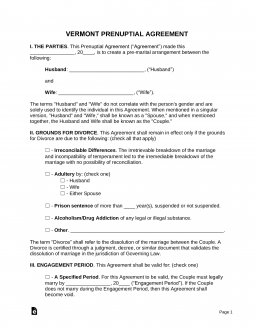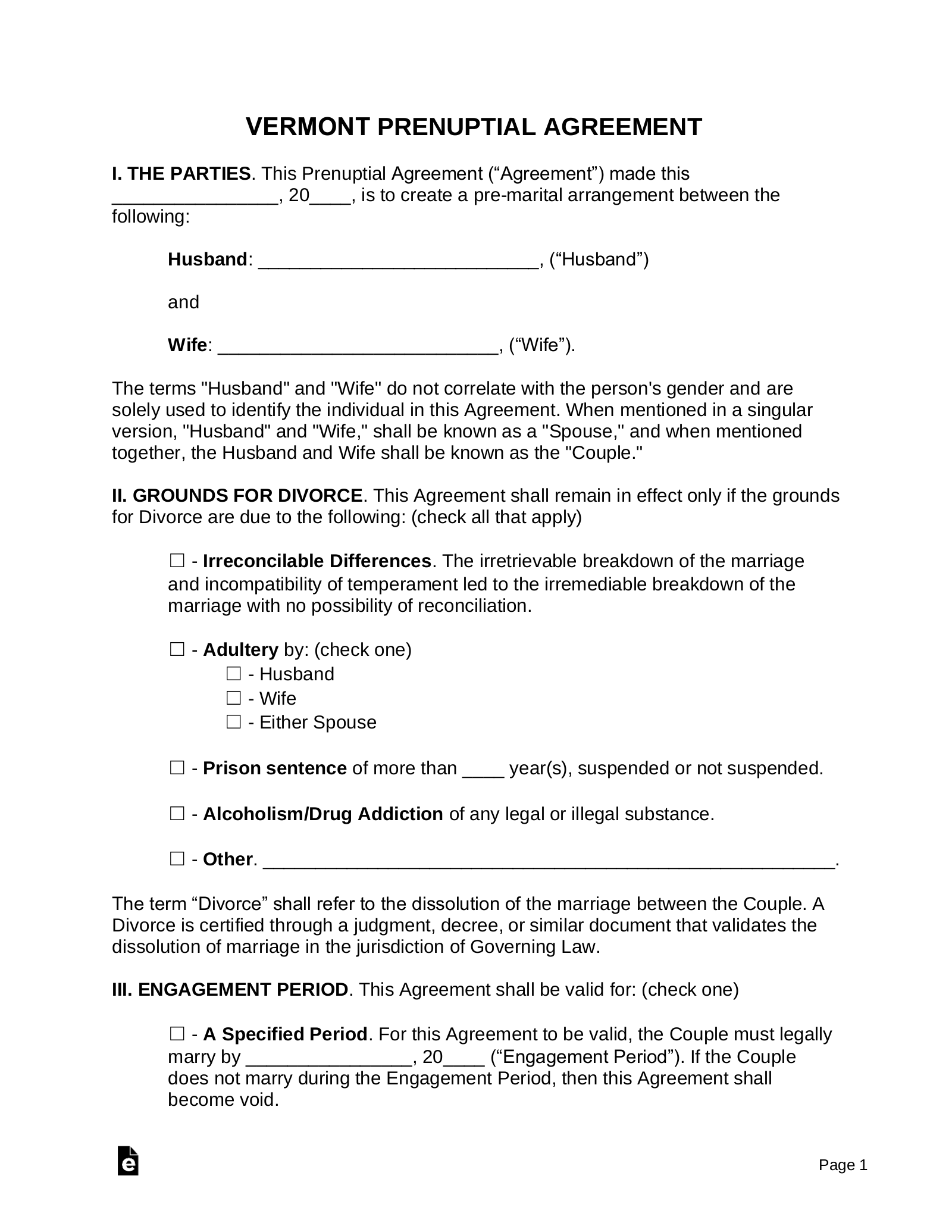Updated May 17, 2023
Or use ContractsCounsel to hire an attorney!
A Vermont prenuptial agreement is created with the intent of clarifying property division between two spouses should their marriage end in divorce. A prenuptial agreement, also referred to as a “premarital” or “antenuptial” agreement, must be executed prior to marriage and only becomes valid if a legal marriage takes place. Provisions included in a prenup are the assignment of property and other assets, certain debts of both parties, property management rights, alimony, and insurance policies. It’s important that this type of contract be created and executed with the help of a professional attorney well versed in Vermont’s divorce laws.
Laws
Case – Bassler v. Bassler, 156 Vt. 353 (1991)
This Vermont case was a leading case on the enforcement of antenuptial agreements in a number of judgments made by the Supreme Court of Vermont. The court, in turn, formed their judgment in the Bassler v. Bassley case based on a number of other citations, including In re Marriage of Button v. Button, 131 Wis. 2d 84 (1986), Padova v. Padova, 123 Vt. 125 (1962), and Osborne v. Osborne, 384 Mass. 591 (1981).
The enforceability of an antenuptial agreement is governed by consideration of whether (1) each spouse has made fair and reasonable disclosure to the other of his or her financial status; (2) each spouse has entered into the agreement voluntarily and freely; and (3) the substantive provisions of the agreement dividing the property upon divorce are fair to each spouse.
Public policy bars enforcement of an antenuptial agreement that is unconscionable at the time it is executed.
[W]here, at the time of divorce, an antenuptial agreement leaves on spouse a public charge, or close to it, the agreement may be unenforceable as against public policy.
Case – Stalb v. Stalb, 168 Vt. 235 (1998)
Our leading case on the enforcement of antenuptial agreements is Bassler v. Bassler… In that case, we held that even if an antenuptial agreement is valid when made, we will not enfoce it if, at the time of the divorce, it would leave one spouse a public charge, or close to it.
Property Settlement; Maintenance
Laws – 15 V.S.A. § 751 and § 752
If the parties to a divorce cannot agree on reasonable and fair property division, the Family Court of Vermont will divide the property in accordance with “equitable distribution” laws.


